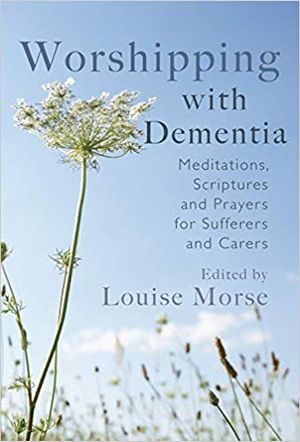Reviewed alongside Dementia: Frank and Linda’s story — new understanding, new approaches, new hope by the same author.
Judging by what patients tell me, the possibility of having dementia frightens them more than having cancer or a stroke. It is also a fearful prospect for Christians. A failing memory raises numerous challenges for participating in church life and Christian service.
They may worry whether they will still have the same relationship with the Lord. They may have known elderly believers who began to do or say uncharacteristic things as their minds failed. The subtitle of the author’s previous book Could it be dementia? captures these anxieties well, as she reassures us that ‘losing your mind doesn’t mean losing your soul’.
In the first of these two books, Louise Morse of Pilgrim Homes discusses such issues as getting help, dealing with the diagnosis, responding to difficult behaviours and ‘tipping points’ for carers. She illustrates these with the experiences of a real Christian couple, Frank and Linda.
The emphasis is on ‘person-centred care’ — trying to find the meaning behind people’s problems and dealing with the whole person, not a set of symptoms. There is an abundance of practical advice gleaned from Pilgrim Homes’ experience in dementia care.
There are sections on maintaining participation in the life of the church and on visiting and providing spiritual support to people with dementia. Each chapter concludes with a short summary — useful for carers with limited time.
I certainly recommend Frank and Linda’s story to anyone touched by the shadow of dementia. As well as being helpful to those directly affected by dementia, it would be useful for ministers and those in caring professions.
I am frequently asked whether caring for people with dementia is very upsetting. The answer is generally ‘no’, but I do find distressing the daily evidences that ‘care’ has become commercialised and people treated merely as a set of problems. This book is a real antidote to that mindset. I would even recommend it to non-Christians as an encouragement to a more compassionate, understanding caring.
The second book, Worshipping with dementia, would make a thoughtful gift to a person caring for someone with dementia. Time and energy can be in short supply, and this selection of brief readings, scriptures, and hymns have been assembled with this in mind.
The readings deal with particular challenges of dementia such as: ‘Having to give things up’, ‘When we feel we’re losing it’, and ‘In the shadows’; along with reminders of the loving kindness of God in such readings as, ‘We will see his face’, ‘Rejoicing in Jesus’, and ‘Safe in God’s hand’. The readings would also provide useful material for pastoral visits or ministry in residential homes.






